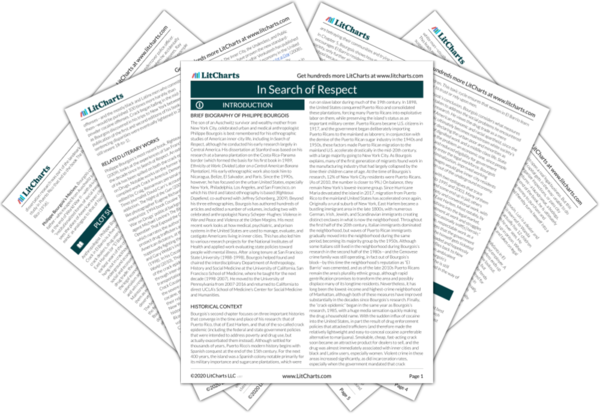Cultural Capital Quotes in In Search of Respect
The street culture of resistance is predicated on the destruction of its participants and the community harboring them. In other words, although street culture emerges out of a personal search for dignity and a rejection of racism and subjugation, it ultimately becomes an active agent in personal degradation and community ruin.
The contrast between Ray’s consistent failures at establishing viable, legal business ventures—that is, his deli, his legal social club, and his Laundromat—versus his notable success at running a complex franchise of retail crack outlets, highlight the different “cultural capitals” needed to operate as a private entrepreneur in the legal economy versus the underground economy.
It’s like they hear my voice, and they stop…There’s a silence on the other end of the line.
Everyone keeps asking me what race I am. Yeah, they say, like, ‘Where’re you from with that name?’ Because they hear that Puerto Rican accent. And I just tell them that I'm Nuyorican. I hate that.
As the historian Michael Katz and many others have noted, U.S. policy toward the poor has always been obsessed with distinguishing the “worthy” from the “unworthy” poor, and of blaming individuals for their failings.












